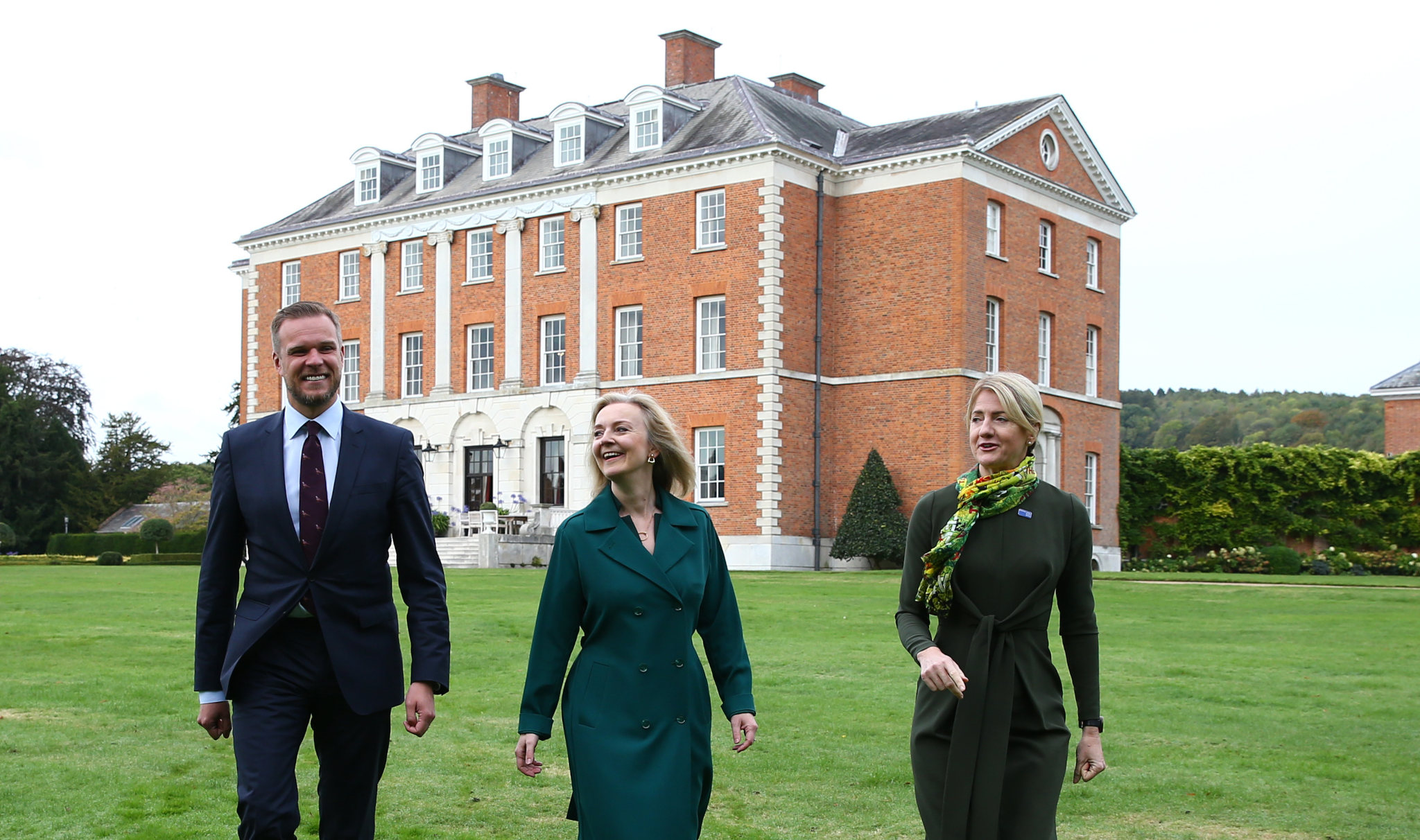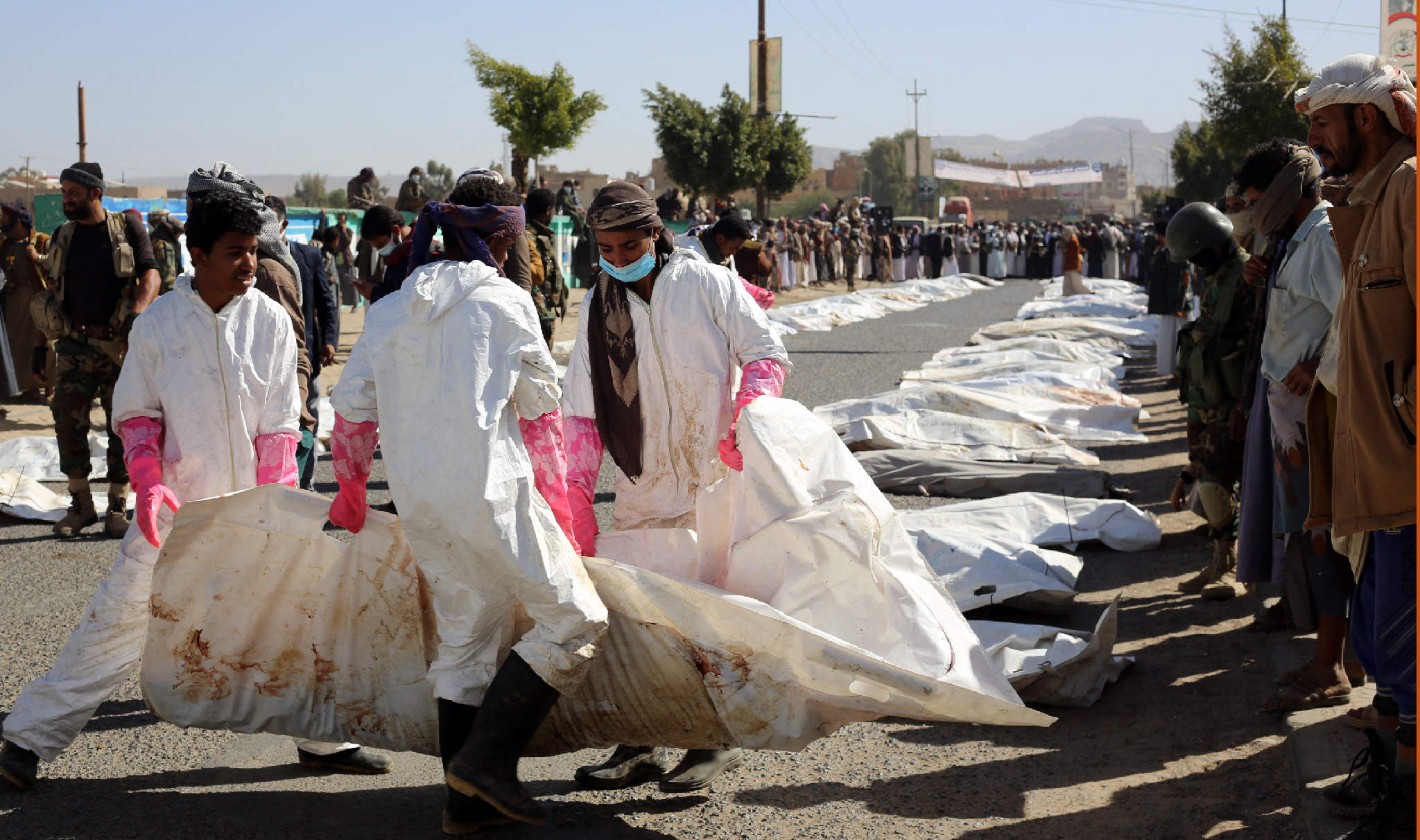Each year around 1,500 international students have their places at UK universities paid for through Chevening scholarships. The Foreign Office-run scheme, with its £59-million annual budget, claims to champion candidates with ideas for “positive change”.
But one applicant has complained that the process is unfair towards candidates from Yemen. The man, who asked to be identified only as Ammar for safety reasons, is an experienced war crimes investigator who exposed atrocities by the Saudi-led military coalition in Yemen.
He was invited to an interview for a Chevening scholarship in March after successfully submitting an essay. The interview was conducted by video call with a political officer from the British Embassy in Yemen, which is based temporarily in the Saudi Arabian capital of Riyadh.
Ammar froze when he realised the political officer was actually a Saudi national. Her previous job was as a legal advisor for a Saudi prince. “I was very shocked,” he wrote in a complaint to Chevening staff. “This was astonishing to me.”
“Either way, it was intimidating and, in my view, deeply wrong“
Ammar said he felt unable to speak about his professional experience. He asked: “How, as a human rights defender, working…in Yemen where Saudi Arabia is at war, was I supposed to talk to a Saudi lawyer based in Riyadh about my greatest achievements, when most of that work was gathering evidence of violations by the Saudi-led coalition in Yemen?
“I thought it was extraordinary, especially given the current conflict in Yemen and Saudi Arabia’s role, that a Saudi national…would be the only face and main voice I hear and speak to while being interviewed for a British scholarship. It made me very uncomfortable and afraid to speak about my work.”
“I think it was at best extremely insensitive to have a Saudi lawyer interviewing Yemenis, at worst it felt like an attempt by the Saudi state to gather information on Yemenis. Either way, it was intimidating and, in my view, deeply wrong.”
Conflict of interest
He compared the interview to a Ukrainian candidate being questioned by a Russian on behalf of British diplomats. The interview took place via video call when Liz Truss was foreign secretary.
Saudi forces have repeatedly bombed civilians in Yemen, often using British supplied weaponry. Truss resumed arms sales to Saudi Arabia in July 2020, claiming there was no risk of war crimes. Children were killed in an airstrike on a village days later.
UK arms giant BAE Systems, which has multi-billion pound contracts with the Saudi military, is a partner of the Chevening scheme. Britain’s largest oil companies – BP and Shell – also donate to it.
Chevening did not select Ammar for a scholarship, which meant he lost out on an offer from the highly regarded London School of Hygiene & Tropical Medicine. Ammar is a qualified doctor and was hoping to advance his medical skills.
In response to his complaint, Miranda Thomas, a senior Chevening administrator, said a British national was also present during the interview but could not turn on their camera due to “an IT issue”. Thomas claimed the Saudi interviewer “works for the UK government and is unconnected to the Saudi government.”
She said: “Chevening operates a selection process based upon a policy of equal opportunity and therefore will not discriminate against any person”. Ammar “achieved a very good score” at the interview and was placed on a reserve list which was “a demonstration of a strong performance”, Thomas added.
Declassified discussed the case with David Walters, a retired British diplomat who was stationed in Yemen and conducted Chevening interviews in other postings.
He commented: “I know the good work Chevening does and the difficult circumstances it faces in organising interviews remotely for Yemeni candidates. I believe it is vital then for Chevening to ensure there is no hint of bias in its interview process.
“Might I suggest that Yemen and its students who work under unimaginable difficulties there, must surely stand out as worthy Chevening candidates, as the UK and Yemen work to build bridges and invest in future leadership.”
Political agenda
Ammar told Declassified he is aware of only one Yemeni candidate receiving a Chevening scholarship in the last round. The successful applicant had worked in the office of the UN Special Envoy for Yemen.
That post was previously held by a British UN official, Martin Griffiths, who has close links to Whitehall.
Chevening openly advertises itself as a soft power tool for UK influence abroad. It is named after a country estate in Kent, which is used as a grace and favour mansion by the foreign secretary.
The website says: “The mission of the Chevening programme is to support UK foreign policy priorities and achieve Foreign, Commonwealth and Development Office objectives by creating lasting positive relationships with future leaders, influencers, and decision-makers.”
Alumni include presidents, ministers, ambassadors and mayors in countries around the world. Human rights activists in states deemed hostile by the UK, like China, are among the scheme’s beneficiaries.
In August, Chevening specifically called for candidates from the Solomon Islands, which lie in the Pacific Ocean near Australia. The leader of the Solomon Islands alarmed Western powers this summer by signing a security deal with China.
A Foreign Office spokesman told Declassified: “Chevening scholarships are awarded solely on merit and performance at interview. We receive far more applications for the scholarship than there are available places.”



